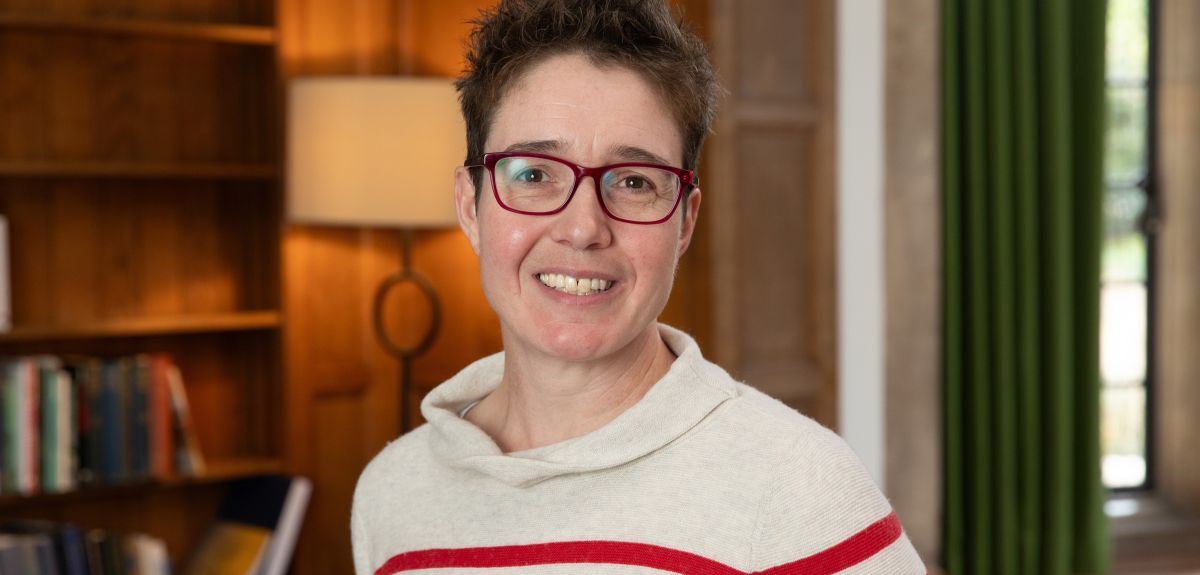
Professor Charlotte Deane named as Executive Chair of the Engineering and Physical Sciences Research Council
The Secretary of State for Science, Innovation and Technology, Michelle Donelan, has appointed Professor Charlotte Deane as the new Executive Chair of the Engineering and Physical Sciences Research Council (EPSRC), part of UK Research and Innovation (UKRI).
Charlotte Deane MBE is currently Professor of Structural Bioinformatics at the University of Oxford and Chief AI Officer at Exscientia plc. She is also a co-director of the Systems Approaches to Biomedical Research Centre for Doctoral Training which she founded in 2009.
It will be a real privilege to lead the EPSRC at such an important time and I look forward to working with colleagues in UKRI and across the sector to help to build a more vibrant and powerful UK research and innovation system.
Professor Charlotte Deane, Department of Statistics, University of Oxford
During the COVID-19 pandemic, Professor Deane served on SAGE, the UK Government’s Scientific Advisory Group for Emergencies.
Her appointment to EPSRC marks her return to UK Research and Innovation. When Deputy Executive Chair of EPSRC she acted as UKRI’s COVID-19 Response Director.
She was appointed Member of the Order of the British Empire (MBE) in the 2022 Birthday Honours for services to COVID-19 research.
Professor Deane will remain affiliated with the University of Oxford, leading the Oxford Protein Informatics Group in the Department of Statistics. Her research interests cover several areas in the field of protein structure and interaction networks, combining both theoretical work and empirical analyses. Of particular interest are the concepts of protein structure evolution, protein folding and structure prediction, as well as understanding the structure and evolution of protein interaction networks.
EPSRC is the main funding body for engineering and physical sciences research in the UK. It invests in research that underpins and advances all areas of science ranging from AI and quantum to clean energy, manufacturing to mathematics, advanced materials to chemistry. At the University of Oxford, EPSRC-supported research spans the breadth of all divisions, tackling challenges that include combatting antimicrobial resistant infections, delivering scalable tidal stream energy, and developing the digital communication infrastructures of tomorrow.
Professor Deane’s return to the Council as its Executive Chair is excellent news for the sector, bringing a strong record in driving pioneering research in business and academia and having spearheaded UKRI’s COVID-19 response at a vital time for the UK. From digital technologies to clean energy, manufacturing to mathematics, advanced materials to chemistry, EPSRC-led discoveries impact on all our lives and I look forward to working with Professor Deane to take forward the innovation that benefits the whole country.
Secretary of State for Science, Innovation and Technology, Michelle Donelan
UKRI Chief Executive Professor Dame Ottoline Leyser said: ‘I am delighted to welcome Professor Charlotte Deane as EPSRC’s new Executive Chair. Charlotte is returning to UKRI, having played a key role during our response to COVID-19 as EPSRC’s Deputy Executive Chair. She brings with her a wealth of experience and an impressive track record as a leader in both academia and business.’
‘She will take on the leadership of EPSRC at a critical and exciting time, with the transformative potential for our economy, public services, and society from new technologies such as AI and quantum. As a core part of UKRI, EPSRC’s strategic investments can shorten the distance between discovery and prosperity, capturing the benefits for today, while catalysing the discoveries of tomorrow.’
Professor Deane said: ‘I am excited to be chosen as Executive Chair of EPSRC. The opportunities for EPSRC research have never been greater from machine learning methodologies which touch practically every aspect of the economy and society, to quantum computing and advanced materials to the growing understanding of the importance of engineering and physical sciences techniques for solving challenges from climate change to future pandemics.’
Professor Deane is expected to take up the role in January 2024.
 Largest ever UK study reveals stark ethnic and social inequalities in lung cancer diagnosis
Largest ever UK study reveals stark ethnic and social inequalities in lung cancer diagnosis
 Oxford’s gargoyles come to life in new Extended Reality (XR) interactive experience
Oxford’s gargoyles come to life in new Extended Reality (XR) interactive experience
 Treating bullying as everyone’s problem reduces incidence in primary schools
Treating bullying as everyone’s problem reduces incidence in primary schools
 Oxford's Ashmolean Museum saves Fra Angelico masterpiece to go on public display from December
Oxford's Ashmolean Museum saves Fra Angelico masterpiece to go on public display from December
 New, ARIA-backed project aims to unlock radically cheaper AI hardware
New, ARIA-backed project aims to unlock radically cheaper AI hardware